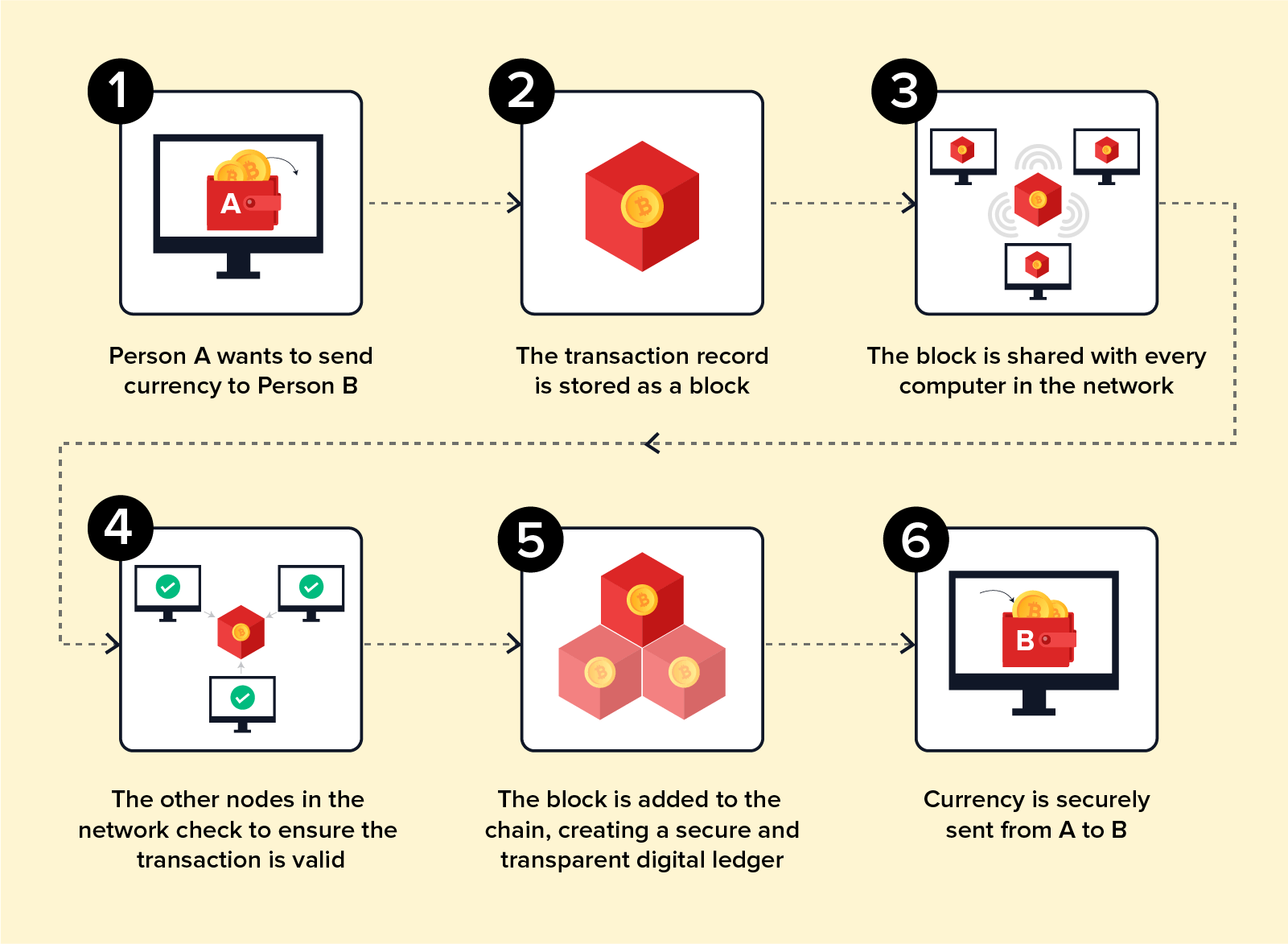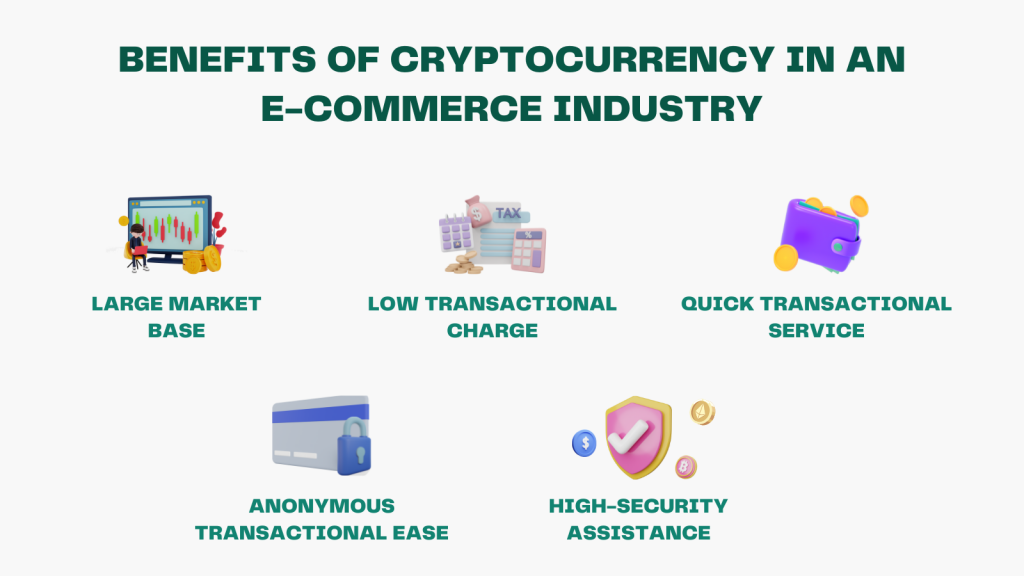The Role of Cryptocurrency in E-Commerce: Transforming Digital Payments
In the fast-paced digital world, cryptocurrency has rapidly gained traction as a viable alternative to traditional payment methods. From Bitcoin to Ethereum, these decentralized digital currencies are not only disrupting traditional finance but also revolutionizing the e-commerce sector. In this article, we will explore the role of cryptocurrency in e-commerce, how it is reshaping digital transactions, and why businesses and consumers alike should consider integrating this modern payment system into their daily transactions.

What is Cryptocurrency and Why is It Important in E-Commerce?
Cryptocurrency is a digital or virtual currency that uses cryptography for security, making it nearly impossible to counterfeit or double-spend. Unlike traditional currencies, cryptocurrencies are decentralized and typically operate on blockchain technology—a distributed ledger enforced by a network of computers (also known as nodes). This decentralized nature ensures that no central authority, such as a bank or government, controls the currency, giving users full ownership of their funds.
Why Cryptocurrency is Gaining Popularity in E-Commerce
- Lower Transaction Fees: One of the key advantages of cryptocurrency in e-commerce is its ability to significantly reduce transaction fees. Traditional payment methods, like credit cards or PayPal, charge merchants a fee for processing payments. These fees can range from 1-5%, and when processed through international payment systems, they increase significantly. Cryptocurrency transactions often carry much lower fees, making them appealing to both consumers and merchants.
-
Speed and Efficiency: Cryptocurrency transactions are typically processed much faster than traditional banking systems. While credit card payments can take days to clear, especially for international transactions, cryptocurrency transfers are nearly instantaneous or may take only a few minutes to complete.
-
Global Accessibility: Cryptocurrencies are not bound by borders, allowing merchants to tap into global markets without worrying about exchange rates or international transaction fees. This is particularly beneficial for businesses seeking to expand their reach beyond traditional payment systems.
-
Security and Fraud Prevention: Cryptocurrencies offer a higher level of security compared to conventional payment methods. Thanks to the underlying blockchain technology, transactions are encrypted and immutable, reducing the likelihood of fraud and chargebacks. This makes it a safer alternative for both buyers and sellers.
How Cryptocurrency Enhances the E-Commerce Experience
Cryptocurrency is transforming e-commerce in various ways, from simplifying transactions to providing new opportunities for businesses to grow. Here are some of the key ways it is impacting the sector:
1. Enabling International Transactions
For e-commerce businesses that operate across borders, cryptocurrencies offer a major advantage by eliminating the need for expensive currency exchanges or dealing with fluctuating exchange rates. Bitcoin, for instance, can be sent to anywhere in the world in just a few minutes, and the process is straightforward. This global accessibility opens up new avenues for business growth and enables businesses to cater to international customers without the usual hassles associated with international banking.
“Cryptocurrency bridges the gap between different currencies, offering a smoother experience for international e-commerce transactions.”
2. Increasing Customer Privacy and Security
Cryptocurrencies also provide anonymity for consumers, giving them more control over their personal and financial data. With traditional payment methods, customers often need to provide a significant amount of personal information, which can be vulnerable to hacking. Cryptocurrency, on the other hand, only requires the wallet address and private key to complete transactions, allowing for greater privacy.
The blockchain ensures that each transaction is secure, traceable, and irreversible, minimizing the chances of fraud. For e-commerce stores, this not only protects their customers’ data but also ensures that they are less likely to face chargebacks, which can hurt their reputation and financials.

3. Streamlining Payments with Smart Contracts
Another exciting development in cryptocurrency and e-commerce is the use of smart contracts. These are self-executing contracts where the terms of the agreement are directly written into lines of code. When certain conditions are met, the contract is automatically executed.
For example, if a buyer purchases a product on an e-commerce website, the smart contract can automatically transfer cryptocurrency to the merchant once the product is shipped, without any manual intervention. This reduces the chances of disputes, delays, or human errors.
4. New Business Models and Opportunities
Cryptocurrency opens up opportunities for new business models in the e-commerce space. For instance, businesses can now accept cryptocurrency as a form of payment for services like subscription models, digital content purchases, or even online gaming and NFTs (Non-Fungible Tokens).
Moreover, businesses that integrate crypto payments into their platforms can attract a new segment of tech-savvy customers who prefer the ease and security of cryptocurrency transactions.
Benefits of Accepting Cryptocurrency for E-Commerce Businesses
For businesses, adopting cryptocurrency in e-commerce offers several benefits that can enhance both their operations and customer satisfaction:
1. Lower Transaction Costs
Unlike traditional payment methods, which come with high processing fees, cryptocurrency transactions are often subject to minimal or no fees. This is especially beneficial for businesses that deal with high volumes of transactions or operate in industries with thin profit margins.
2. Avoiding Currency Conversion Fees
For businesses with international customers, cryptocurrencies eliminate the need for currency conversion. By accepting digital currencies like Bitcoin or Ethereum, businesses can avoid exchange rate fluctuations and the associated conversion fees.
3. Enhanced Transparency and Trust
Blockchain technology offers transparency because all transactions are recorded on a public ledger, which is immutable and verifiable. Customers can track the status of their transactions, and businesses can assure buyers that their payments are secure and irreversible.
4. Attracting New Customers
By accepting cryptocurrency, businesses can appeal to tech-savvy consumers who prefer to pay with digital currencies. This opens up new market opportunities, particularly in regions where traditional banking infrastructure is limited or where cryptocurrencies are more popular than fiat currencies.
Challenges of Cryptocurrency in E-Commerce
Despite its numerous benefits, the use of cryptocurrency in e-commerce also presents some challenges. Here are a few obstacles businesses may face when adopting this payment method:
1. Volatility of Cryptocurrencies
One of the biggest challenges for businesses is the price volatility of cryptocurrencies. The value of cryptocurrencies like Bitcoin can fluctuate wildly, making it difficult for businesses to set fixed prices. For instance, a product that costs 1 Bitcoin today may cost 1.2 Bitcoins tomorrow if the value of Bitcoin rises significantly.
2. Lack of Widespread Adoption
While cryptocurrency adoption has been increasing, it is still not as widely accepted as traditional payment methods. This means that many customers may be unfamiliar with how to use or obtain cryptocurrency, potentially limiting its usefulness for businesses that rely on a broader customer base.
3. Regulatory Uncertainty
The regulatory environment for cryptocurrencies is still evolving. Different countries have different rules and regulations regarding the use of digital currencies, which can create confusion for businesses. In some regions, cryptocurrencies may even be outright banned or heavily regulated.
“Businesses must stay up-to-date with the evolving legal landscape to ensure compliance and avoid potential legal issues.”
Frequently Asked Questions (FAQs)
Q1: How do I start accepting cryptocurrency in my online store?
A1: To accept cryptocurrency, you’ll need to set up a digital wallet and choose a payment processor that supports cryptocurrencies. Many e-commerce platforms, like Shopify, have integrated cryptocurrency payment options that make the process easier.
Q2: Which cryptocurrencies should my e-commerce store accept?
A2: The most commonly accepted cryptocurrencies are Bitcoin (BTC), Ethereum (ETH), and Litecoin (LTC). However, depending on your target audience, you may also consider accepting other popular cryptocurrencies like Ripple (XRP) or Bitcoin Cash (BCH).
Q3: Is cryptocurrency secure for e-commerce transactions?
A3: Yes, cryptocurrency transactions are highly secure due to the encryption and decentralization of blockchain technology. However, merchants must also take steps to ensure the security of their private keys and wallets to prevent theft.
Q4: How does cryptocurrency affect tax reporting for e-commerce businesses?
A4: Cryptocurrencies are treated as assets in many countries, and businesses are required to report gains or losses from cryptocurrency transactions for tax purposes. It’s essential to consult with a tax professional to ensure compliance with local laws.
Conclusion
Cryptocurrency is undeniably transforming the way businesses and consumers engage in e-commerce. It offers numerous benefits, including lower transaction fees, faster payments, and increased security, making it an attractive option for both consumers and businesses. However, it also comes with its own set of challenges, such as volatility and regulatory uncertainty. By carefully considering these factors, businesses can determine whether cryptocurrency is the right choice for their operations.
For more insights on the impact of cryptocurrency in digital payments, explore resources like CoinDesk and CleverTap, which offer valuable information on the latest trends in the crypto and e-commerce world.

As the world moves toward a more decentralized future, the role of cryptocurrency in e-commerce will only
continue to grow, offering new opportunities for businesses to thrive in the digital economy.

